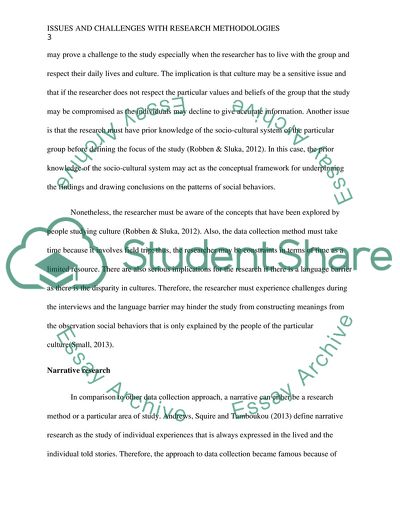Cite this document
(Issues and Challenges with Qualitative Research Methodologies Essay Example | Topics and Well Written Essays - 1500 words, n.d.)
Issues and Challenges with Qualitative Research Methodologies Essay Example | Topics and Well Written Essays - 1500 words. https://studentshare.org/education/1873352-data-collection-method-comparison
Issues and Challenges with Qualitative Research Methodologies Essay Example | Topics and Well Written Essays - 1500 words. https://studentshare.org/education/1873352-data-collection-method-comparison
(Issues and Challenges With Qualitative Research Methodologies Essay Example | Topics and Well Written Essays - 1500 Words)
Issues and Challenges With Qualitative Research Methodologies Essay Example | Topics and Well Written Essays - 1500 Words. https://studentshare.org/education/1873352-data-collection-method-comparison.
Issues and Challenges With Qualitative Research Methodologies Essay Example | Topics and Well Written Essays - 1500 Words. https://studentshare.org/education/1873352-data-collection-method-comparison.
“Issues and Challenges With Qualitative Research Methodologies Essay Example | Topics and Well Written Essays - 1500 Words”. https://studentshare.org/education/1873352-data-collection-method-comparison.


